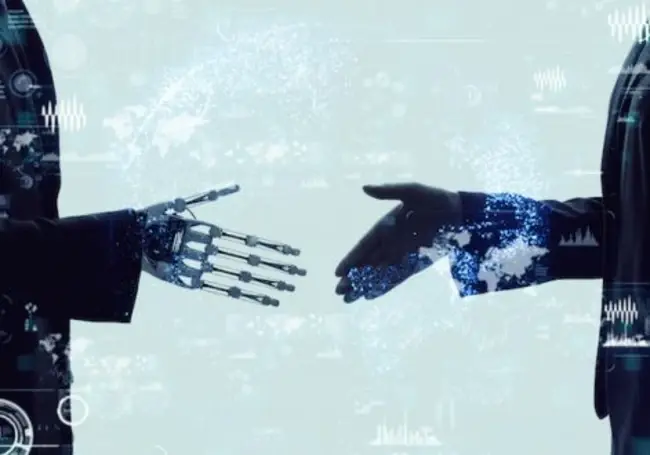The fast-moving uptake of artificial intelligence (AI) could replace 75 million jobs by 2025, according to the World Economic Forum. However, The Future of Jobs Report 2018 predicts that AI will create an additional 133 million roles.
The report predominately focused on roles within large multinational corporations. According to the findings, small and medium-size businesses could demonstrate a greater potential for new roles.

Machines to take over human tasks
By 2022, there will be a significant change between humans and machines when it comes to tasks in the workplace. Humans currently perform an average of 71% of total task hours.
However, the current climate has the potential to alter dramatically. In just four years, machines could be conducting up to 57% of these tasks.
Changing of employment types
Almost 50% of companies predict that automation will inevitably lead to a huge decrease of their full-time workers by 2022. Although, 38% of surveyed business expect to expand their workforce due to the growth of technology-based roles.
Roles in demand
Data Analysts, Scientists, Software Developers and Social Media Experts will be more in demand in the period up to 2022. Also expected to grow are roles such as Robotic Engineers, Information Security Analysts and Big Data Specialists.
This shift will require workers to upgrade their skills and knowledge. Analytical thinking, technology design and programming will continue to grow as essential industry skills.
According to the report, 35% of employees could undergo additional training of up to 6 months. In addition, 10% of roles could potentially require training that lasts over a year.
Drivers of change
The World Economic Forum outlines four specific technological advances that could potentially drive the workforce shift. Ubiquitous high-speed mobile internet, AI, widespread adoption of big data analytics, and cloud technology "are all set to dominate the 2018-2022 period."
Alternative reports
The UK could experience “large swathes” of people becoming “technologically unemployed,” according to the Bank of England’s chief economist. Andy Haldane has warned that AI and robots will render hundreds of jobs obsolete. On the other hand, a report by the tech advisory firm Gartner indicates that AI will produce 2.3 million jobs by 2020. However, automation could also displace 1.8 million jobs, resulting in a net gain of 500,000 new roles. In a PwC report, AI and robotics are predicted to generate over 7 million jobs in the UK by 2037. These roles will predominantly be based in the healthcare, science and education sector - and could compensate for the jobs lost through automation.




Comments ( 0 )